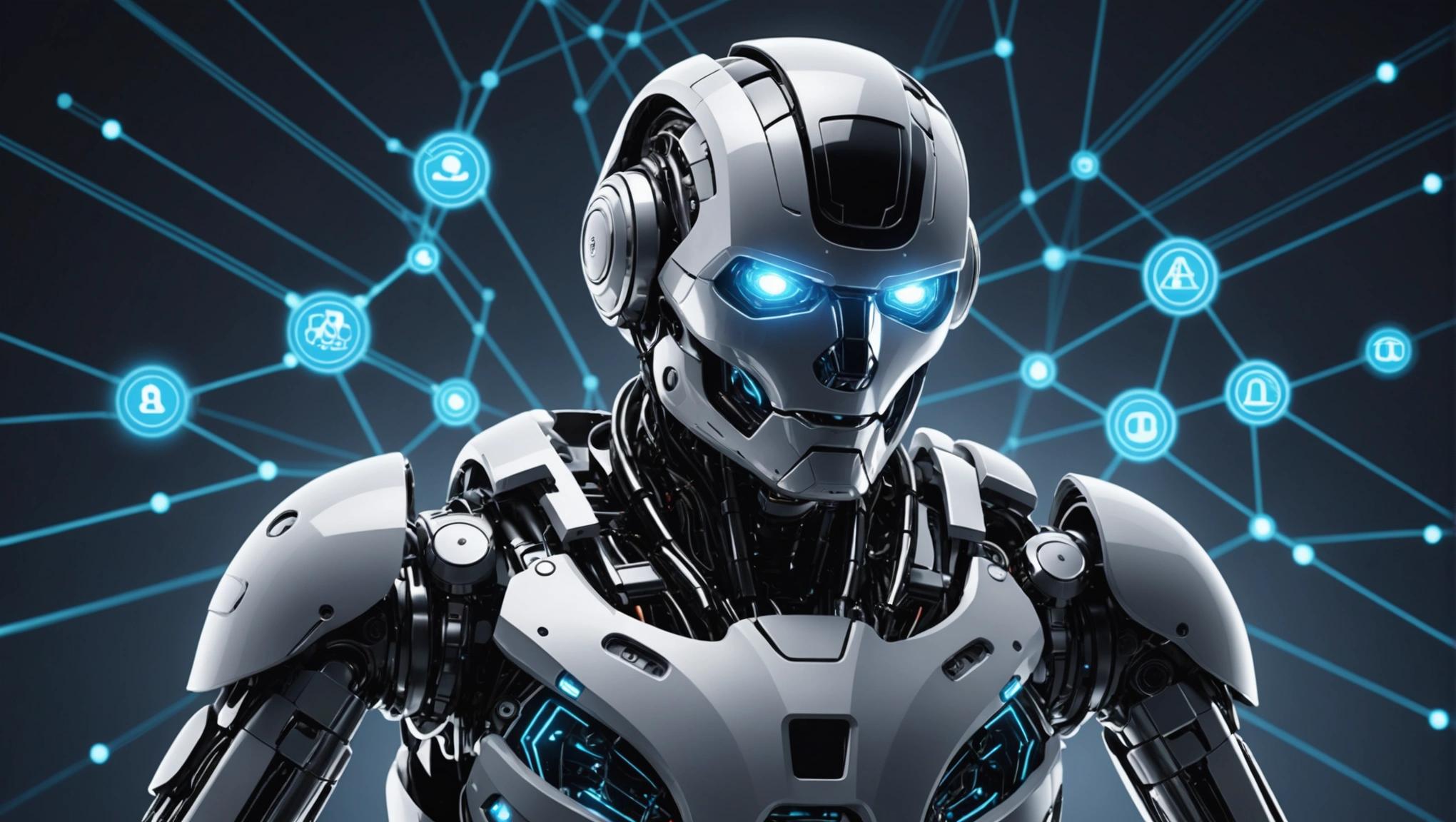Artificial Intelligence in Software Development.
Artificial Intelligence (AI) is revolutionizing the software development lifecycle by enhancing efficiency, accuracy, and innovation. Harnessing the power of AI has become imperative for organizations aiming to stay competitive and deliver cutting-edge solutions. From automating mundane tasks to optimizing complex processes, AI technologies are reshaping how software is designed, developed, and maintained.
By leveraging AI-driven tools and algorithms, developers can streamline workflows, identify patterns, and make data-driven decisions to accelerate project timelines and improve overall quality. This shift towards AI-powered solutions is not only transforming the way software is created but also opening new possibilities for customization, scalability, and intelligent problem-solving.
As we delve deeper into the era of AI integration in software development, understanding its nuances and capabilities is key to unlocking a future where innovation knows no bounds.
AI Applications in Different Phases of Software Development Lifecycle
Requirement Analysis: Transforming Requirement Gathering with AI
AI tools are streamlining the requirement analysis process by analyzing vast amounts of data to identify patterns and trends. This facilitates more accurate requirement gathering and helps in predicting potential issues early on. By leveraging natural language processing (NLP) and machine learning algorithms, AI can extract essential information from user requirements, aiding in creating comprehensive and precise software specifications.
Design Phase: AI Integration in Architectural Design and User Experience
Integrating AI in the design phase enables developers to create more intuitive user interfaces and efficient software architectures. AI algorithms can analyze user behavior data to suggest design improvements for better user engagement. Additionally, AI-driven tools like generative design algorithms can assist in creating innovative design solutions by exploring numerous design possibilities based on specified criteria, thereby fostering creativity and optimizing user experiences.
Development Phase: AI-Driven Automation in Coding and Performance Optimization
AI automates repetitive tasks in the development phase, such as generating code snippets, debugging, and optimizing performance. This not only speeds up the development process but also improves code quality and reduces human errors. Advanced AI techniques like reinforcement learning are being utilized to enhance code generation processes, enabling developers to focus on higher-level tasks like algorithm design and system architecture.
Testing and Quality Assurance: AI-Powered Bug Detection and Test Case Generation
AI-powered testing tools enhance the efficiency and effectiveness of the quality assurance process. Machine learning algorithms can identify patterns in code to predict potential bugs, leading to more robust testing and quicker bug resolution. Moreover, AI-based test case generation tools can automatically create test scenarios based on code changes, ensuring comprehensive test coverage and efficient bug detection.
Deployment and Maintenance: AI for Predictive Maintenance and Continuous Monitoring
AI is instrumental in automating maintenance tasks like software updates, performance monitoring, and troubleshooting. By analyzing historical data and real-time performance metrics, AI can predict maintenance needs, reducing downtime and enhancing overall software reliability. Furthermore, AI-driven predictive maintenance systems can anticipate system failures before they occur, enabling proactive maintenance and minimizing service disruptions.
Artificial intelligence (AI) plays a pivotal role in enhancing various phases of the software development lifecycle. Let’s delve deeper into how AI applications are revolutionizing each phase:.
By harnessing the power of AI across these phases, organizations can streamline their software development processes, improve product quality, and stay competitive in today’s dynamic market. The integration of AI in software development is not merely a trend but a strategic imperative for building cutting-edge, efficient, and reliable software solutions that meet evolving user demands and technological advancements.
Benefits of Integrating AI in Software Development Life Cycle (SDLC)
Improved Efficiency
Integrating artificial intelligence (AI) in the SDLC can significantly boost efficiency by automating repetitive tasks, optimizing processes, and reducing manual errors. AI-powered tools can analyze large datasets at a faster pace than humans, leading to quicker development cycles and improved time-to-market. This improved efficiency translates into faster delivery of high-quality software products, giving organizations a competitive edge in the market.
Enhanced Decision Making
AI algorithms can provide valuable insights based on historical data and real-time analytics, enabling software development teams to make informed decisions. By leveraging AI in the SDLC, organizations can enhance decision-making processes, identify trends, and predict potential issues before they occur. This proactive approach to decision-making helps in mitigating risks and ensuring that software projects align with business objectives.
Predictive Maintenance
One of the key benefits of integrating AI in SDLC is predictive maintenance. AI algorithms can analyze system performance metrics and user feedback to predict potential software failures or bugs. By proactively addressing these issues, organizations can minimize downtime, improve user experience, and reduce maintenance costs. Predictive maintenance also allows for strategic planning of software updates and enhancements, ensuring continuous system reliability and user satisfaction.
Cost Reduction
Integrating AI in the SDLC can lead to cost savings in various ways. By automating manual tasks, reducing errors, and improving efficiency, organizations can lower development costs and optimize resource utilization. Additionally, predictive maintenance can help prevent costly system failures and unplanned downtime, further contributing to overall cost reduction. The cost savings achieved through AI integration can be reinvested in innovation and further improvements in the software development process, driving long-term growth and sustainability.
Scalability and Flexibility
AI integration in the SDLC offers scalability and flexibility to adapt to evolving project requirements and changing market dynamics. AI-powered tools can scale resources based on project needs, allowing teams to handle complex tasks efficiently and deliver projects on time. The flexibility provided by AI enables agile development practices, fostering innovation and agility within software development teams.
Enhanced Security
Another significant advantage of integrating AI in the SDLC is enhanced security. AI algorithms can detect and mitigate potential cybersecurity threats, identify vulnerabilities in the code, and strengthen overall system defenses. By proactively addressing security concerns throughout the development lifecycle, organizations can build robust and secure software applications, safeguarding sensitive data and protecting against cyber attacks.
Integrating AI in the SDLC offers a myriad of benefits, ranging from improved efficiency and enhanced decision-making to cost reduction and enhanced security. By embracing AI technologies in software development processes, organizations can drive innovation, accelerate project timelines, and deliver high-quality software solutions that meet the demands of today’s dynamic market landscape.
Challenges and Considerations with AI Implementation in SDLC
Implementing artificial intelligence (AI) in Software Development Life Cycle (SDLC) comes with its own set of challenges and considerations. In this blog section, we will delve into the key aspects that organizations need to be mindful of when integrating AI into their SDLC processes.
Data Privacy and Security Concerns
One of the primary challenges in incorporating AI into SDLC is ensuring data privacy and security. With AI algorithms requiring access to vast amounts of data for training and decision-making, organizations must implement robust data protection measures to safeguard sensitive information. This includes compliance with data protection regulations such as GDPR and ensuring secure data handling practices throughout the AI implementation lifecycle.
Skill Gap and Training Needs
Another crucial consideration is the skill gap and training needs that come with AI implementation. Organizations need to invest in upskilling their workforce to understand and leverage AI tools effectively within the SDLC. Providing adequate training programs and resources can help bridge the skill gap and ensure a smooth integration of AI technologies. Additionally, fostering a culture of continuous learning and professional development can empower employees to adapt to the changing demands of AI-driven SDLC processes.
Ethical Implications
Ethical considerations also play a significant role in AI implementation in SDLC. From bias in AI algorithms to the impact on job roles, organizations must address the ethical implications of AI to build trust among stakeholders and users. Developing ethical guidelines and frameworks can help mitigate potential risks and ensure responsible AI deployment. Moreover, promoting transparency in AI decision-making processes and encouraging ethical awareness among development teams can enhance accountability and promote ethical behavior in AI-driven SDLC environments.
While AI offers numerous benefits in enhancing SDLC processes, addressing data privacy, skill gaps, and ethical concerns is paramount for successful implementation and sustainable growth. By prioritizing data security, investing in workforce development, and embracing ethical practices, organizations can harness the full potential of AI in SDLC while mitigating risks and fostering trust in AI technologies.
Future Trends and Innovations in AI for Software Development
Explainable AI
In recent years, explainable AI has emerged as a crucial aspect of AI development. It focuses on making AI models and their decisions understandable to humans. This trend is essential for building trust in AI systems and ensuring transparency in decision-making processes. Explainable AI techniques, such as feature importance analysis and decision tree visualization, help developers and stakeholders interpret how AI systems arrive at their outputs.
AI-Driven DevOps
The integration of AI in DevOps practices is revolutionizing software development processes. AI-driven DevOps enables faster deployment, improved collaboration, and proactive issue resolution. By leveraging AI algorithms, organizations can enhance the efficiency and reliability of their software development lifecycle. AI-Driven DevOps tools can automate testing, monitoring, and deployment tasks, leading to more reliable and robust software products.
Automated Code Generation
Automated code generation is another significant trend shaping the future of software development. AI-powered tools can analyze requirements and automatically generate code snippets, reducing manual coding efforts and accelerating the development process. With advancements in natural language processing and machine learning, automated code generation is becoming more sophisticated and widely adopted in the industry. These tools not only increase productivity but also help maintain code consistency and quality throughout the development cycle.
Ethical Considerations in AI Development
As AI continues to advance in software development, it is crucial to address ethical considerations. Issues such as bias in AI algorithms, data privacy, and the impact of AI on employment need to be carefully evaluated and mitigated. Developers and organizations must prioritize ethical AI practices to ensure that AI technologies are developed and used responsibly.
Personalized User Experiences
AI is also driving the trend of personalized user experiences in software applications. By leveraging AI algorithms to analyze user behavior and preferences, developers can tailor interfaces, content, and features to individual users. This level of personalization enhances user satisfaction, engagement, and retention, ultimately leading to more successful software products.
The future of AI in software development is multifaceted, encompassing transparency, automation, ethics, and personalization. Embracing these trends not only enhances the efficiency and quality of software development but also fosters innovation and competitiveness in the industry. As AI technologies continue to evolve, staying informed and adaptable to emerging trends will be key to navigating the ever-changing landscape of software development.
Past Error in Section: ValueError(“Don’t write anything after the final json “`”)
Conclusion
Embracing artificial intelligence in the software development lifecycle has the potential to revolutionize the industry by enhancing efficiency, accuracy, and innovation. By leveraging AI technologies such as machine learning and natural language processing, developers can streamline processes, identify patterns, and automate tasks, ultimately leading to faster deployment and higher-quality software products. As AI continues to evolve, its integration into software development will become increasingly essential for staying competitive in the ever-changing tech landscape.





